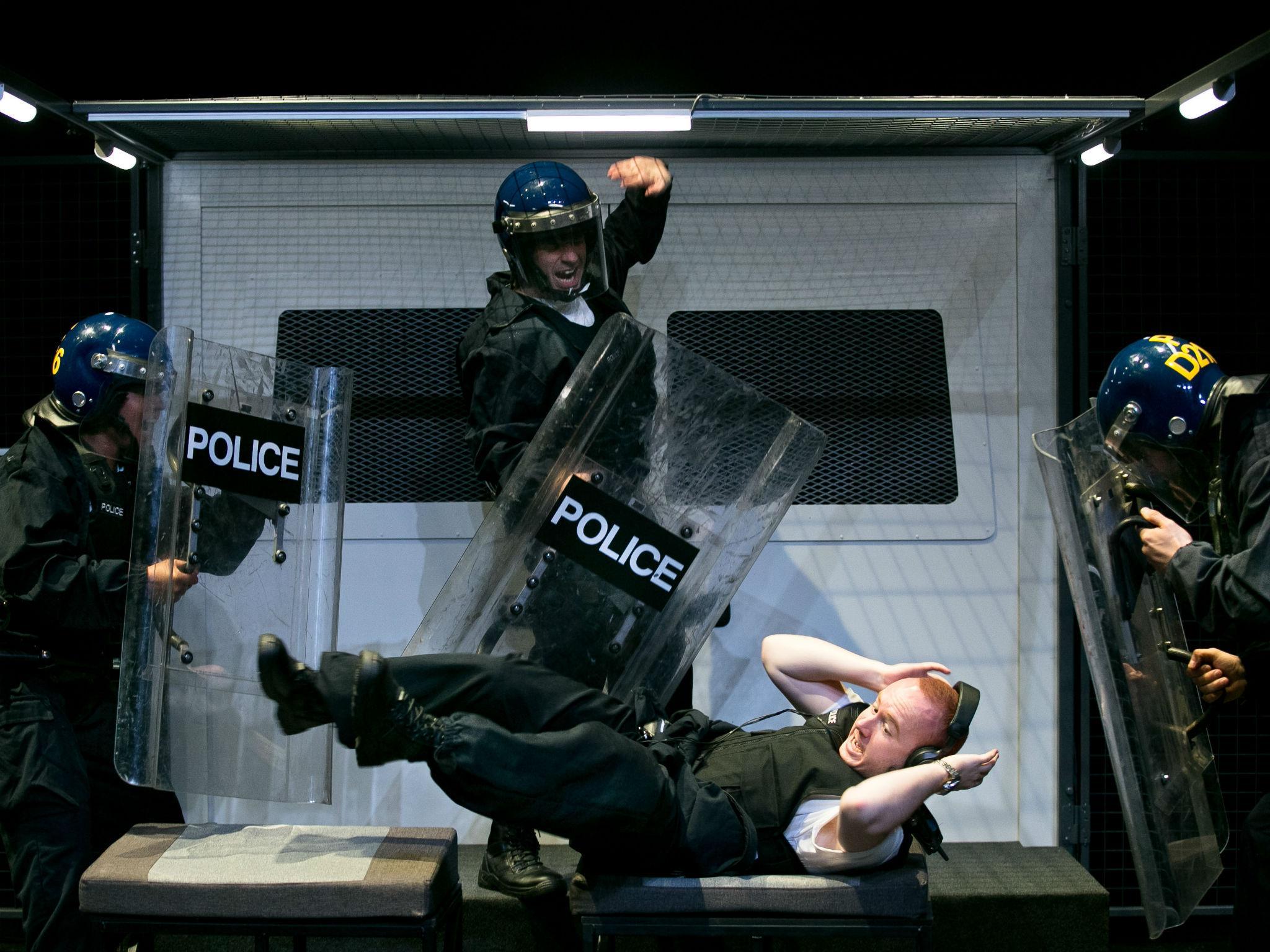Edinburgh Festival, review, Stand By: Authentic and compelling
The piece about the work of the police is written by Adam McNamara, a former serving police officer turned actor, whose credits include ‘Black Watch’ and ‘Harry Potter and the Cursed Child’

Your support helps us to tell the story
From reproductive rights to climate change to Big Tech, The Independent is on the ground when the story is developing. Whether it's investigating the financials of Elon Musk's pro-Trump PAC or producing our latest documentary, 'The A Word', which shines a light on the American women fighting for reproductive rights, we know how important it is to parse out the facts from the messaging.
At such a critical moment in US history, we need reporters on the ground. Your donation allows us to keep sending journalists to speak to both sides of the story.
The Independent is trusted by Americans across the entire political spectrum. And unlike many other quality news outlets, we choose not to lock Americans out of our reporting and analysis with paywalls. We believe quality journalism should be available to everyone, paid for by those who can afford it.
Your support makes all the difference.The decision to host an Army-sponsored venue inside a working New Town Drill Hall at this year’s Fringe has raised a number of eyebrows, not least because the programme is co-presented by Summerhall, one of the most boundary-pushing venues in Edinburgh during August. Yet anyone who has experienced the shows at Army@the Fringe (staffed by, it must be said, very hospitable serving soldiers) will appreciate that propaganda isn’t the aim of the venture, or not the sole aim at least.
Amid the festival that brought us the premiere of Black Watch, the best of these shows demonstrate the warts-and-all humanity of those who go into combat. Stand By, however, isn’t about the Army at all, but it does investigate another branch of the uniformed services that often comes in for a bad press. Unusually for theatre, in comparison to most other media, this is a piece about the work of the police, seen through the pressure cooker environment of a van in Dundee filled with riot cops, waiting to burst in a suspect’s flat door and arrest him.
Directed by the award-winning, Scotland-based Joe Douglas, the piece bears an added authenticity in that it was written by Adam McNamara, a former serving police officer turned actor, whose credits include Black Watch and Harry Potter and the Cursed Child. He also appears as Chris, the sergeant in charge of the quartet in the van, whose stoicism is frayed by regular phone calls from his angry wife. Alongside him sit the tough and quick-witted Rachel (Jamie Marie Leary); gruff Dundonian everybloke Davey (Andy Clark); and Marty (Laurie Scott), transferred from the Met due to his disenchantment with the racial aspects of London policing, even though his after-work partying suggests he’s a bit too eager to let off steam himself.
Within Natasha Jenkins’ minimal iron-frame set, the characters remain generally static, with McNamara’s script relating the boredom of police operations well, even as it leaves plenty of space for the characters to work through debates in contemporary policing, from budget cuts to psychological pressure to community relations. It’s not a perfect piece – in particular, the dialogue is often overlong and unnatural, as though designed to be read in the pages of a thriller rather than performed – but the essential truth of the situation McNamara has created is apparent and compelling.
Join our commenting forum
Join thought-provoking conversations, follow other Independent readers and see their replies
Comments